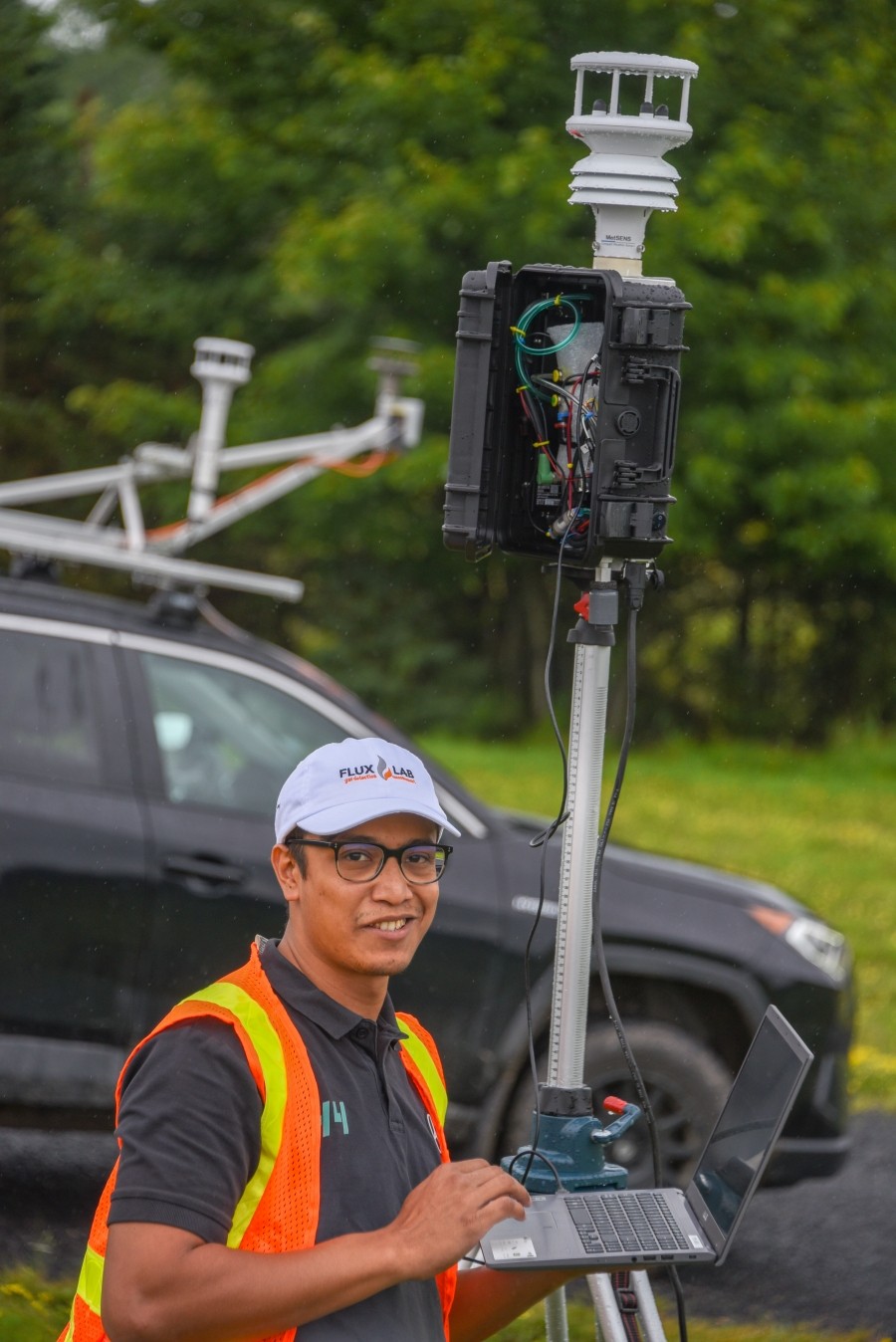
St. Francis Xavier University’s FluxLab has received $1 million in funding and its research data is helping inform vital new policy the Canadian government is developing to meet landfill methane emission reduction targets. Landfills are one of the country’s three major methane emitters.
FluxLab, led by Dr. Dave Risk, undertook a project collecting methane measurements at 12 landfills in three different climatic regions across the country to better understand major emission sources from solid waste landfilling operations.
Ottawa Centre MP Yasir Naqvi made the funding announcement May 13 during the 2024 CanCH4 Symposium – Methane by the Numbers, a technical meeting, held at Carleton University, to share research and measurement data on methane emissions in support of Faster & Further, Canada’s National Methane Strategy.
The aim of FluxLab’s study, carried out this past year, was to address critical data gaps by conducting a systematic measurement study to define methane sources, their variation, mitigation opportunities, and potential for improved modeling.
Athar Omidi holds a master’s degree in mathematics and completed a master’s degree in computer science at StFX in 2022. She was the lead data analyst working on this project and is continuing to analyze the data collected. “Our study revealed that active faces of landfills, where new waste is added, emit significant amounts of methane, raising important questions about the timing of methane formation in relation to waste deposition,” she says.
“We observed considerable variability in these emissions, with higher rates in colder seasons and lower rates in summer, highlighting the need for continuous measurements to accurately estimate total emissions and further research to unravel the complexities of landfill methane dynamics.”
FluxLab Research Operations Manager Chelsie Hall says executing this field intensive project required hiring seven new employees to work alongside the lab’s existing 25 staff and students.
“The breadth of training people obtain at FluxLab allows them to take research into the world whether by improving measurement methods and accounting of methane and other greenhouse gases, or through policy development,” she says.


